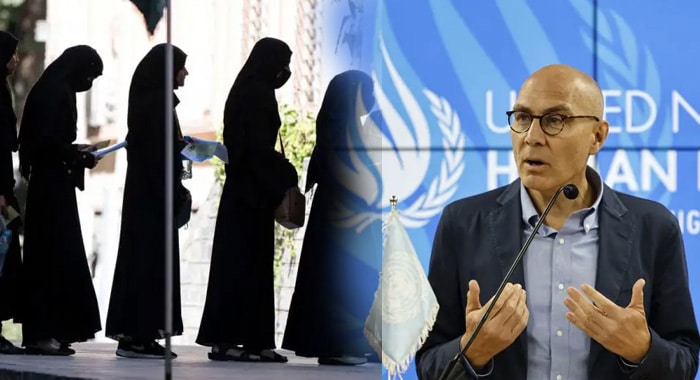The United Nations Human Rights Council delivered a scathing rebuke of the Taliban on Monday, as representatives from more than ten countries condemned Afghanistan’s escalating human rights crisis—particularly the regime’s institutionalized oppression of women and marginalized communities. The condemnation came during the Council’s 59th session, where Richard Bennett, the UN Special Rapporteur for Afghanistan, presented a deeply troubling report highlighting the near-total collapse of justice under Taliban rule. “Afghan women have been stripped of all avenues to seek justice,” Bennett stated, detailing the regime’s growing use of gender-based discrimination, forced marriages, and sweeping bans on education and employment for women and girls. He called for the urgent establishment of an independent international accountability mechanism.
UN High Commissioner for Human Rights Volker Türk echoed these concerns, warning that Afghan women and girls have been “erased from public life.” In his address to the Council, Türk highlighted the regime’s systematic policies of exclusion and persecution, not only targeting women but also LGBTQ+ individuals, religious minorities, and persons with disabilities. “What we are witnessing in Afghanistan is not just repression—it is gender apartheid,” he warned.
Delegations from Canada, Italy, Indonesia, Qatar, Ireland, South Africa, Switzerland, and other nations voiced deep alarm over public executions, gender-based violence, and the Taliban’s blatant disregard for international human rights obligations. Several representatives warned that continued impunity would only embolden further atrocities, and they demanded immediate global accountability measures.
“The Taliban’s actions are not only morally indefensible, they are a direct violation of international law,” one delegate asserted, calling on the global community to document abuses for potential prosecution and to impose coordinated diplomatic pressure.
Member states also reaffirmed their commitment to Afghanistan’s women and civil society. Pledges were made to increase support for education, capacity-building, and protection of human rights defenders. Emphasis was placed on empowering Afghan-led efforts to resist the regime’s repression and build resilient civic institutions.
The session also drew attention to the targeting of the Hazara community and other ethnic and religious minorities, with speakers warning of a broader pattern of state-sponsored persecution under the Taliban’s rule.
Adding to the urgency, Türk cautioned that humanitarian support for Afghan women is diminishing even as their vulnerability grows. “The international community must not abandon Afghan women now,” he urged, calling for sustained aid and attention.
The unified outcry in Geneva marked a turning point in international resolve. As the Taliban deepens its authoritarian grip, the UN and its member states signaled that silence is no longer an option. Without concrete and coordinated global action, the ongoing human rights catastrophe in Afghanistan threatens to become permanent.
The world, speakers warned, must stand with Afghanistan’s women—not in words alone, but through justice, accountability, and unwavering support.





